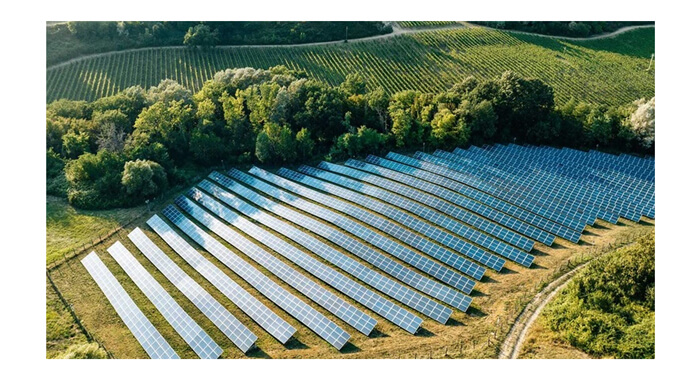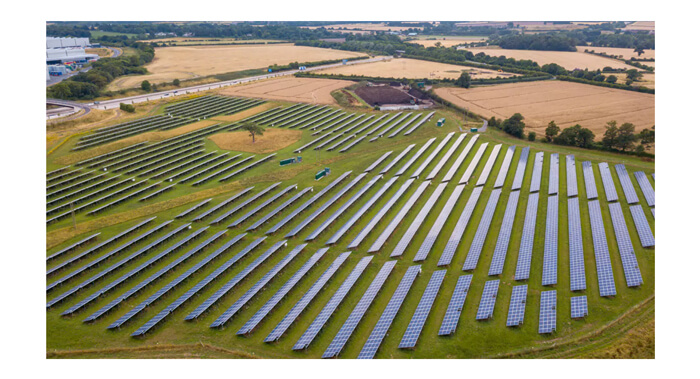Contents:
Solar energy is transforming the way Lusaka, the capital city of Zambia, addresses its growing energy demands. With increasing awareness of renewable energy and the challenges posed by power shortages, solar panels have become an attractive solution for businesses, households, and institutions. Below, we explore the adoption of solar panels in Lusaka, their benefits, and how to choose the best solutions for your needs.

Why Choose Solar Panels in Lusaka?
-
Energy Independence: Solar power allows Lusaka residents to reduce dependency on grid electricity, which is often unreliable.
-
Cost Savings: With abundant sunlight, solar panels significantly lower electricity bills in the long term.
-
Environmental Impact: Solar energy reduces reliance on fossil fuels, contributing to cleaner air and a healthier environment.
-
Government Incentives: Zambia is promoting renewable energy through supportive policies, making it easier to adopt solar solutions.
Solar Panel Options for Lusaka
When choosing solar panels, consider the following types:
-
Monocrystalline Panels: High efficiency, long-lasting, and ideal for areas with limited roof space.
-
Polycrystalline Panels: Cost-effective with good performance, suitable for most residential and commercial uses.
-
Thin-Film Panels: Lightweight and flexible, often used for portable solar solutions.
Solar Panel Specifications
|
Specification
|
Monocrystalline
|
Polycrystalline
|
Thin-Film
|
|
Efficiency
|
20-25%
|
15-20%
|
10-12%
|
|
Lifespan
|
25-30 years
|
20-25 years
|
15-20 years
|
|
Cost
|
High
|
Moderate
|
Low
|
Factors to Consider When Buying Solar Panels
-
Sunlight Availability: Lusaka enjoys ample sunlight, making most types of solar panels suitable.
-
Installation Space: Determine if you have enough roof or ground space for the panels.
-
Budget: Evaluate upfront costs versus long-term savings.
-
Quality Assurance: Look for panels with a warranty and from reputable manufacturers.
Where to Find Solar Panel Providers in Lusaka
Lusaka has several suppliers offering a wide range of solar panels, inverters, batteries, and installation services. Research local reviews and consult professionals to ensure you select the right provider for your needs.
Adopting solar panels in Lusaka is not just a step toward sustainability but also a practical solution to energy challenges in the region.
Installation and Maintenance of Solar Panels in Lusaka
Proper installation and regular maintenance are critical for maximizing the efficiency and lifespan of solar panels. Here’s a quick guide:
-
Hire Certified Installers: Ensure your system is installed by experienced technicians who understand Lusaka’s climate and grid integration requirements.
-
Optimal Placement: Panels should face the direction with maximum sunlight exposure, typically northward in the Southern Hemisphere.
-
Regular Cleaning: Dust and debris can accumulate on panels, reducing their efficiency. Clean them periodically using non-abrasive tools and water.
-
System Monitoring: Invest in monitoring systems to track energy production and detect any issues early.
Solar Batteries: Ensuring Energy Storage
In Lusaka, where power outages can disrupt daily life, pairing solar panels with batteries is highly recommended. Lithium-ion batteries are particularly popular due to their efficiency, lightweight design, and long lifespan. These batteries store excess solar energy for use during nighttime or power cuts, providing seamless energy reliability.
Popular Solar Battery Features
-
High Energy Density: More power in a smaller footprint.
-
Durability: Withstands the temperature variations in Lusaka.
-
Scalability: Easily expandable for growing energy needs.
Community and Industrial Applications
While many households in Lusaka have adopted solar panels, community and industrial projects are also benefiting from solar energy.
-
Schools and Hospitals: Solar systems provide consistent energy for critical functions like lighting and refrigeration.
-
Agriculture: Farmers use solar-powered water pumps for irrigation, reducing reliance on fuel-based systems.
-
Businesses: Small to medium enterprises are leveraging solar energy to cut costs and ensure uninterrupted operations.

Financing Solar Panels in Lusaka
Investing in solar panels can be a significant upfront cost, but there are various financing options available to make the transition easier. Local banks, international organizations, and solar companies in Lusaka often provide financial assistance, including:
-
Solar Loans: Loans specifically designed for renewable energy projects with competitive interest rates.
-
Pay-As-You-Go (PAYG): A popular option in Zambia, allowing users to pay small installments for solar systems.
-
Grants and Subsidies: Some programs offer partial or full funding for solar installations.
Key Financial Options for Solar Energy
|
Option
|
Description
|
Target Audience
|
|
Solar Loans
|
Loans from banks or solar companies to cover upfront costs.
|
Businesses and households with stable income.
|
|
Pay-As-You-Go (PAYG)
|
Flexible payment plans with low initial costs.
|
Low- to middle-income households.
|
|
Grants/Subsidies
|
Government or NGO support for renewable energy adoption.
|
Communities, schools, and institutions.
|
Local Partnerships and Opportunities
Collaboration between local governments, NGOs, and private companies has been instrumental in increasing solar adoption in Lusaka. Partnerships often result in:
-
Awareness Campaigns: Educating residents about the benefits of solar energy.
-
Training Programs: Providing skills for installing and maintaining solar systems.
-
Bulk Purchasing: Reducing costs for communities by pooling resources to buy solar equipment.
FAQs







